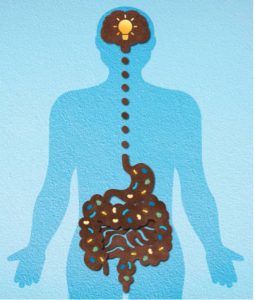Introduction
Living with Irritable Bowel Syndrome (IBS) can be challenging, affecting millions of individuals worldwide. The complexity of symptoms, coupled with the impact on daily life, makes IBS a condition that demands attention and understanding.
What is IBS?
IBS is a common digestive disorder with a range of symptoms, including abdominal pain, bloating, gas, and changes in bowel habits. These symptoms can vary widely from person to person, making it a difficult condition to diagnose and treat effectively.
Understanding Gut Health
The gut plays a key role in maintaining overall health and well-being. It is home to microbes collectively known as the gut microbiota. This intricate ecosystem of bacteria, viruses, and fungi plays an important role in digestion, nutrient absorption, and immune function.
In individuals with IBS, the balance of the gut microbiota may be disrupted, leading to inflammation and hypersensitivity of the intestines. Factors such as stress, diet, and genetics can influence the composition of the gut microbiota – contributing to the development and exacerbation of IBS symptoms.
The Gut-Brain Connection

The gut and the brain communicate bidirectionally through the gut-brain axis, a complex network of nerves, hormones, and signalling molecules. Stress and emotional factors can trigger symptoms in individuals with IBS, highlighting the connection between the mind and the gut.
Managing IBS through Lifestyle Changes
1. Identifying foods that trigger IBS symptoms through a low-FODMAP diet can be beneficial for some individuals. It’s import to remember that the low-FODMAP diet is temporary and that you should follow the elimination step for no longer than 6 weeks. Please speak to you GP before changing your diet.
2. Increasing fibre intake through fruits, vegetables, and whole grains may help regulate bowel movements.
3. Probiotics are beneficial bacteria that can support a healthy gut microbiota. Including probiotic-rich foods such as yogurt and fermented foods in your diet or taking probiotic supplements may offer relief.
4. Stress management practices such as yoga, meditation, and deep-breathing exercises can help manage stress and, in turn, alleviate IBS symptoms. Regular exercise is also known to have a positive impact on gut health.
Seeking Help
If you are experiencing persistent or severe symptoms of IBS it’s important to talk to a healthcare professional. A thorough evaluation, including a detailed medical history and possibly diagnostic tests, can help determine an appropriate treatment plan tailored to your individual needs.
Remember, you are not alone in this journey, and with the right support, it is possible to regain control of your gut health and overall well-being.


